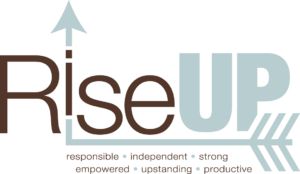Earlier this year, Sam Turnipseed conducted a teen workshop for RiseUP Cooperative in which he shared simple tips for doing well in a job interview. Currently a commercial lender for Southern Heritage Bank, Sam says he has interviewed for every job he has taken since he began working at age 14. He was a schoolteacher in the nation’s capital for a couple of years before returning to Chattanooga and entering the world of banking and finance, where he has worked for the better part of the past 25 years.
From this teen workshop, I learned some valuable skills that will help me get my next job. I learned that it’s helpful to know background information about the job you are trying to get, that the way you dress is often a deciding factor, and that eye contact during an interview is important.
Your resume is the first impression your potential employer will get of you, and I learned that 88% of resumes are rejected if a picture is attached. Some good things to put on your resume include volunteer experience, such as helping at your community kitchen. Also, if you have an email address that sounds inappropriate or immature, it is unlikely the employer will consider you over someone who has the same credentials and uses just a first and last name for an email address.
When you are scheduled for an interview, arrive 15 minutes early instead of exactly at the time you were told. It shows that you are eager to get the job. While you are being interviewed, be aware that your body language sends a lot of nonverbal communication. It is good to lean in or have good posture while talking to your potential employer, because it shows you are interested in the conversation and care about the job. Don’t nod too much, because that can be interpreted as brushing off the information you are receiving. Also, make eye contact with the employer while you talk, but don’t hold it so long that it becomes overwhelming.
The presenter, Sam Turnipseed, talked about a lot of things that I experienced during my very first job interview. During it, something I struggled with was the question, “Why should we hire you?” I was quickly stumped on this, because I had already told my prospective employers all of my strengths and weaknesses. I ended up repeating my strengths, because I wasn’t thinking about telling them anything that makes me stand out from other people. However, now I understand what that question is asking and will be better equipped to answer it.
Another piece of advice is to not respond to the question “What are your weaknesses?” with an answer like: “People say I work too much,” because this makes you look bad. Also, do not talk negatively about your former employer. On my second job interview, I knew this and told the interviewers that my former job provided a great work environment, but I’d needed something more suitable for my schedule. They liked hearing this and were assured that once hired, I wouldn’t talk badly about them after I leave. The best tip from the end of the workshop was to answer the question “Why should we pick you?” with something like: “I will be successful, either here or somewhere else.” For my future jobs that are more serious, I will be using this answer—not in an overly confident way, but in a humble and determined way.

